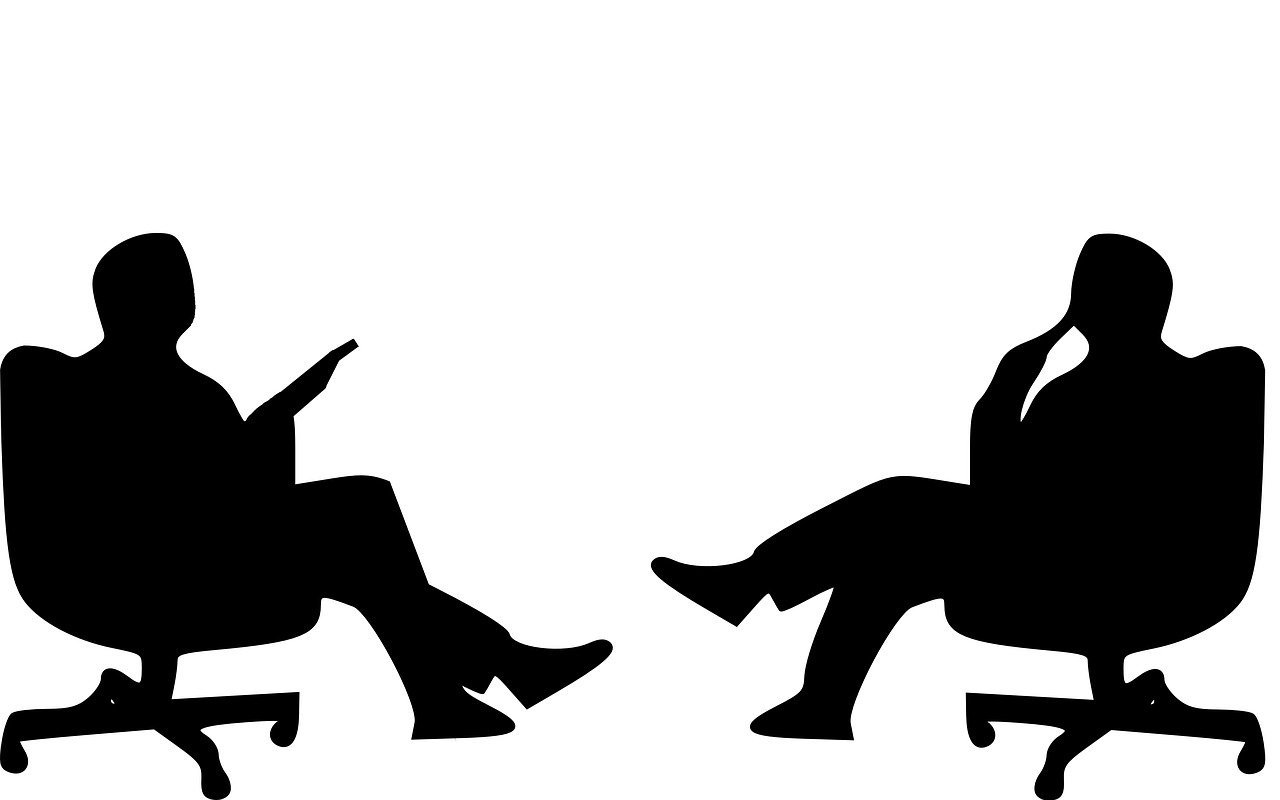Dr. Martin “Marty” Shoemaker interviewed by Scott Jacobsen on Humanist chaplaincy in Canada, the United States and the United Kingdom.
Dr. Martin “Marty” Shoemaker is a trained clinical psychologist and, currently, a Humanist Chaplain at Kwantlen Polytechnic University (Multifaith Centre) and Vancouver General Hospital (August, 2014-Present). Previously, he worked as a psychologist and instructor in organizational behaviour. Here we talk about the context of humanist chaplaincy in Canada and the establishment of a new tradition in Canada.
Scott Douglas Jacobsen: So, you have some connection to the British scene or have collaborated with individuals from the United Kingdom relevant to humanist chaplaincy. Could you explain the origin of that collaboration?
Dr. Marty Shoemaker: In 2022, the military humanist chaplaincy in the Netherlands invited me to attend a conference near Utrecht, where the University of Humanistic Studies has a humanist degree program—the first in the world. We had some panel discussions and speakers. I co-presented with a humanist chaplain from England named David Savage.
David began his journey in 2012 when he first provided spiritual care at St. Thomas’ Hospital, part of the National Health Service Foundation Trust. He was the first non-religious person to complete the spiritual health care practice program in England, which, like in Canada, takes two years. Here in Canada, pastoral care is a prerequisite for becoming a chaplain.
At the conference, which military chaplains primarily attended, there were also school chaplains and some secular counsellors. In the Netherlands, one can refer to oneself as a humanist counsellor after completing the University of Humanistic Studies degree. It is recognized in the same way someone might say, “I am a Presbyterian chaplain.” Humanist chaplains in the Netherlands are recognized as religious chaplains.
From this experience, I also established relationships with chaplains in Norway and Ireland. Even a few interested individuals from Italy wanted to start their chaplaincy program. Italy does not have a humanist society; it has a national movement which has been around for centuries and consists mainly of non-believers.
As a counsellor and chaplain, I gained insight into the rapid growth of secular service in Europe. This development occurred many years before it was recognized here in North America. For example, in the United States, the humanist chaplaincy program began in the 1990s, and now there are 200 to 300 chaplains accredited by the Humanist Society. However, they still must undergo pastoral care training to secure paid positions at hospitals or institutions.
In Canada, humanist chaplaincy is relatively new. The movement gained momentum thanks to Nick Bruzzone, who pushed back against the religious rituals he encountered as a non-believer in the military. Based on secular statistics released in 2018 or 2019, a survey conducted within the Canadian Armed Forces revealed that 39% of soldiers identified as non-religious. This data highlighted the need for chaplains who could serve these individuals, as they did not wish to consult religious chaplains or belong to a church.
Under Commander Bruzzone’s leadership, we began discussing an accreditation program in 2014 or 2015, and by 2022, we had accredited our first chaplains. There were four of us: Mary Bennett at the University of Toronto, Shrishti Hukku at the University of Ottawa, myself at the British Columbia Institute of Technology, and Martin Frith, who was our president and later served as the chaplain for Canadian members of our association, Humanist Canada.
The increasing secularization within our population largely inspired this initiative. I live in a Vancouver area called Cascadia, which stretches from the Yukon to Northern California. It is considered one of the most secular regions outside certain European areas. The British Columbia Humanist Association conducted a survey in 2013 that further underscored this trend.
The survey included some provocative questions posed to our residents. Remarkably, 69% of respondents indicated they were not affiliated with any church. So, over two-thirds of the city and the lower mainland do not attend Church regularly and do not identify with any religious institution. These statistics are part of why Vancouver General Hospital began considering non-religious, non-affiliated chaplains like myself. With so many patients coming into the hospital, when asked if they wanted to speak with a chaplain, many would respond, “Why would I want to do that? I don’t talk to chaplains.” Then we must explain, “Yes, but we also have non-religious spiritual advisers.” That would pique their interest. This is the shift taking place, Scott, here in Canada.
Jacobsen: What about the cases where there was an atheist chaplain in the United States? The individual tried to get accredited twice but was rejected both times. How does that American case compare to other cases in Europe, where Christianity holds a more equal status with the non-religious and thus less privileged in society?
Shoemaker: Christian chaplaincy is the oldest in the world. Early Asian religious systems did not even conceive of chaplaincy as we understand it today. Chaplaincy is very much a Western tradition, although there were religious associates in the Islamic tradition who would attend to the sick in hospitals and on battlefields. However, they were not called chaplains; they were more like extensions of the mosque.
In the United States, the religious right and certain politicians have strongly resisted the introduction of secular chaplains in the military. You might be referring to the case involving the Military Association of Atheists and Freethinkers (MAAF), founded by Jason Torpy, an atheist in the military who tried to get accredited as an atheist chaplain. The term “atheist” often provokes an adverse reaction, whereas the term “humanist” is less familiar and less likely to provoke adversarial responses.
The United States has historically had a solid anti-atheist sentiment. For example, in the 1960s, Madalyn Murray O’Hair brought a case against the inclusion of “under God” in the Pledge of Allegiance, which sparked significant controversy. Despite this, the courts have generally upheld the Constitution, which is more secular, maintaining a separation of Church and state. However, atheists in the American military have often faced marginalization, and openly identifying as an atheist could be problematic for one’s career.
In contrast, Canada has a much more accepting environment within its military. While it is not entirely non-religious, Canada’s military is more diverse, with many immigrants and other religious systems represented. The secular movement in Canada has faced a different pushback from a robust religious right in the United States. This religious right in the U.S. has been a significant force, particularly in supporting Donald Trump and his presidential bids. It has existed for a long time, and the Republican Party has leveraged its influence, especially in small, rural communities where church attendance is high.
The belief that America is a fundamentally Christian nation has been perpetuated, but it is essentially a myth. The Founders were mostly liberal Christians, heavily influenced by the Enlightenment, which was far from religious nationalism. As a chaplain in Canada, I know it is a much more tolerant environment. I am part of a group at the Chaplain’s Innovation Lab, where non-affiliated or secular chaplains meet every other week to discuss our experiences.
A chaplain in Texas who is relatively young recently started her job at a hospital. She is experiencing significant challenges in getting patients and even staff to accept her because she is in a very conservative area outside of Dallas-Fort Worth. It is very different from the situation here in Vancouver, where I am, where most students, when you mention “humanist chaplain,” may not know what it is. Still, they don’t react negatively when you say you are a non-religious or secular spiritual adviser. They do not respond dramatically as if struck by lightning. It is an opportunity for many people not affiliated with any religion and interested in some discussion.
Jacobsen: Do you make any distinction between humanist chaplaincy and regular chaplaincy? In other words, are there ways in which the services provided by a humanist chaplain significantly differ from those of a religious chaplain?
Shoemaker: There is a tremendous overlap between everyone working in a multi-faith center. Most of the training, even in pastoral care programs that chaplains are required to take, involves courses in divinity or theology, followed by a two-year program, which often takes place. At the same time, they are already hired as a form of practical training.
These programs emphasize empathy and must be completed by chaplains of all religious backgrounds. So, you find yourself in classes with other religious chaplains—those from various branches of Christianity, Asian religions, and even perhaps pagan chaplains. Even Druids in England provide spiritual care as part of the revival of ancient earth-based faiths.
When you are around these people and listen to the instruction, it comes down to being present with them, allowing them to tell their stories, express their grief, and discuss their suffering or ambitions—whether in a hospital, prison or any other setting. This approach is akin to client-centred counselling, which is fundamentally secular and was not initiated by any religious system. However, there is an overlap with what you are taught, which is to listen and be present. We, as humanist chaplains, support this same approach.
I think the differences arise, Scott, when someone says, “I don’t believe in God” or “I’m not religious.” In these cases, we do not have to participate in any rituals. For example, if you are with a religious client who is dying, they might say, “Would you pray for me?” Or a relative might request, “Would you pray for them?” As humanist chaplains, we need to be prepared for these moments. When someone asks this, and you’re in their worldview for a few minutes, you might say, “I do not pray, but let us come up with words that are meaningful to you and express what you would like to be prayed for.” You may create a sense of community together, or some may choose to pray.
Other humanist chaplains I have spoken to say that when a person is in need, they avoid discussing that. They do not pray to prevent distraction or discomfort. Instead, they might pray within the person’s worldview and support them, even though they do not believe anyone is listening other than the people in the room.
We must be prepared to integrate with people’s spiritual worldviews. As humanist chaplains, we are pretty flexible, but we are also comfortable when people say, “My family is here, and they are insisting I pray to God so I can go to heaven. How do I respond? I don’t believe in God. I do not believe in heaven, but they’re pressuring me because they know I’m going to die, and I do not want to pray.”
These situations arise, and we know how to handle them because we are very supportive. I am unsure how a Christian chaplain might respond unless they are open-minded and say, “Your family is not calling the shots here; you are.” But if they are a devout Christian chaplain, they might say, “It would not hurt you to pray because you do not know where you are going. So, why not pray just to be safe?”
Jacobsen: Excellent. Thank you.
Shoemaker: Talk to you later.







Article Discussion